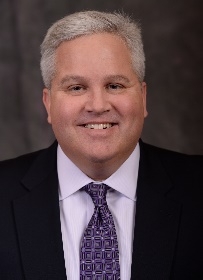MPI Research: State of Mobile Event Apps

Meeting Professionals International (MPI) and DoubleDutch recently released a report: “The State of Event Apps”.
The report examined adoption rates, what types of organizations are adopting apps the most and why event organizers utilize apps.
To explain what brought about the mobile event app survey, Jessie States, manager of professional development at MPI, said, “In MPI’s Future of Meetings research, mobile event apps consistently appeared as a topic of discussion and interest to industry and non-industry professionals alike. As a topic of interest to our community, we wanted to find out more about how meeting professionals currently use mobile apps—and what their future uses will be.”
In reference to key findings in the survey, States mentioned the current adoption rates for event apps. “The number of meeting professionals who utilize event apps is impressive — 63 percent. When you include the number who believe they will do so in the next year or so, the percentage rises to 85 percent. That's a really astounding adoption rate, with associations paving the way.”
Of the 382 meeting professionals responding to the survey, association meeting planners have the highest adoption rate at 71 percent. Government meetings have the lowest rate at 50 percent. Jennifer Hawkins, director of marketing for DoubleDutch said she thought that 71 percent statistic would surprise people.
Hawkins explained that people often think associations are slow moving, but that those organizations exist for the sole purpose of creating “epic” meetings and gathering people together. "It made sense and was validating to see that in the data,” Hawkins said.
As to why meeting professionals incorporate mobile apps into their events, attendee experience leads the list. Sixteen percent said their app development was for attendee convenience, as well as a source of data to improve their events.
Fifteen percent said their apps were designed to encourage attendee engagement. Only 3 percent of survey respondents said their app was used primarily to collect data.
Hawkins found that combined answer of attendee convenience and data source enlightening. The meeting professional’s intent for the app is attendee convenience and engagement, but in the end, the data pulled from the app is important to them as well.
“Engagement is what brings [the meeting professional] in and the data is what keeps them coming back,” Hawkins said.
For the 37 percent of meeting professionals not yet using a mobile app for their events, budget plays a key role. Twenty-one percent of respondents say apps are too expensive and 14 percent claim they cannot get budget approval.
The top two reasons meeting professionals cannot get budget approval for an event app are WiFi availability and generational differences. One survey respondent said, “the cost to boost WiFi upload and download capabilities is still so prohibitive in some properties” in reference to WiFi availability.
Another survey participant addressed the generational issue saying, “Difficulties arise when introducing the app to attendees who have never used it before. Proper marketing and promotion is important to making sure there is usage. Older or less tech-savvy attendees may not understand how the app functions.”
One interesting finding in the report is what features of the app are most important to planners. Session descriptions (20 percent) and schedule building (19 percent) were the top two features for planners. Networking came in fourth at 10 percent.
Hawkins felt that planners were not taking enough advantage of the engagement functions of their apps and the data associated with that function. Analyzing data and creating a story from that data is not an easy task.
Hawkins suggests that planners team up with their greater marketing team whether it be marketing analytics or marketing ops to understand and take advantage of that data to take their event to the next level.
While engagement features may not be what planners are focused on right now, they are focused on those features heading into the future. The top three most requested future features are voting and polling, content and connection recommendations, and in-app activity stream of trending sessions, most popular comments, etc.
For more insights into how event professionals are using event apps, you can read the full report here.


Add new comment